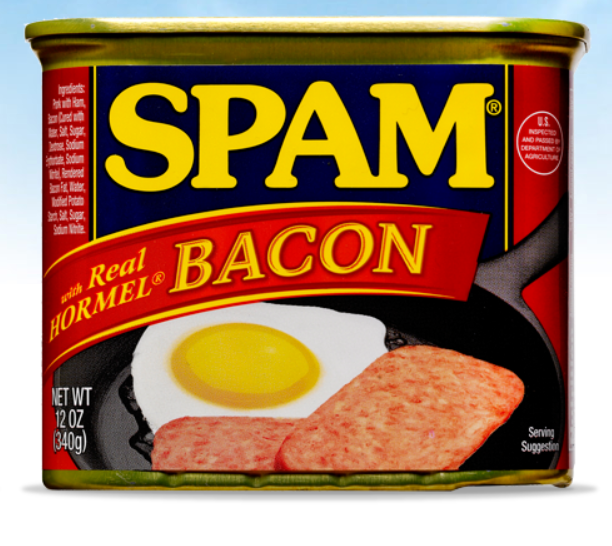Companies and Brands
Will Hormel Be Taken Seriously in Organic Meat With Applegate Buyout?
Published:
Last Updated:
It is no secret by now that more consumers want to eat more and more organic or naturally raised foods. The fight against antibiotics, hormones and use of GMO franken-feed for animals has become one of the most easily recognized megatrends in America. Source: Spam.com
Source: Spam.com
So, what do you think about news that Hormel Foods Corp. (NYSE: HRL) is making an acquisition of a leading natural and organic meats company?
Hormel has announced that it has entered into a definitive agreement to acquire Applegate Farms. The $775 million acquisition will add the Applegate brand to Hormel’s lineup. Applegate is listed by Hormel as the number-one brand in the natural and organic value-added prepared meats category.
So, the real question is how consumers are going to react. Applegate is all over the refrigerated racks at Whole Foods and other grocery chains as a top organic and natural prepackaged meat product.
As far as why this might come with some brand recognition issues for those die-hard organic and natural meat and food buyers, that is simple: the name Hormel is often associated with salty canned and prepackaged foods. Some of Hormel’s top products you might recognize from the shelves of grocery stores: Hormel Chili, Hormel Compleats, Hormel Taco Meats, Spam, Jennie-O Turkey Store, Black Label Bacon and dozens of others.
While the merger is subject to customary closing conditions and regulatory approvals, the deal was said to be expected to close within 60 days. Based on how many deals have been around for large companies wanting to acquire private consumer product lines, 24/7 Wall St. would predict almost immediately that the Federal Trade Commission and Department of Justice would have little if anything as a reason to try to block this deal.
So, it does not look like this is going to end up being a move to sell organic Spam at grocery stores. Sorry, but it just seems almost impossible to imagine that Whole Foods or other high-end natural and organic grocers would want to ever try to put up an organic version of the canned Spam on their shelves.
ALSO READ: 10 Stocks to Own for the Next Decade
The good news about this deal is that Hormel outlined how it wants to operate Applegate. The press release was specific to say that Applegate will operate autonomously and would be a standalone subsidiary in Hormel’s Refrigerated Foods segment.
Applegate has roughly 100 employees located primarily in Bridgewater, N.J. With some new personnel transferring from Hormel to go to the same facility in Bridgewater, Hormel has more than 20,000 employees. What makes Applegate’s model unique here, and what makes the company seem grossly undercounted in the number of actual employees, is that Applegate is said to have strategic relationships with a diverse set of manufacturers and processors — and they are said to draw from approximately 1,800 family farms.
So, how does Applegate fit into the Hormel business?
Applegate has less than 100 direct employees versus Hormel, by how we read the press release.
Applegate was shown to be expecting roughly to be about $340 million in 2015 annual sales. Wall Street is expecting Hormel annual sales for 2015, not including this deal, of roughly $9.5 billion.
The deal is projected to be neutral to Hormel Foods earnings per share in fiscal 2015, and accretive by approximately seven to eight cents per share in fiscal 2016. The consensus earnings estimate from Thomson Reuters for 2016 is $2.72 in earnings per share, prior to counting this deal.
The $775 million purchase price for Applegate compares to a market cap of about $15 billion for Hormel.
ALSO READ: Do Major Food Companies Really Worry About Bird Flu
It may seem odd to many consumers and outsiders that organic and natural foods buyers would go with Hormel as their brand. It could end up being a huge coup and victory if Hormel manages this deal successfully. Also, there is a new trend now that big and established food and beverage companies using the old additives and other items in their products are moving toward naturals, organics and specialties.
The biggest beer makers in the world are acquiring craft and specialty beer makers. The old-school traditional grocery stores decided to go sell at least some of the exact same organic and natural foods as Whole Foods and its newer competitors — without the joke about it costing a whole paycheck.
Jeffrey Ettinger is the chairman, CEO and president of Hormel Foods. He acknowledged the following about the move toward organics and naturals:
A growing number of consumers are choosing natural and organic products. This deal allows us to expand the breadth of our protein offerings to provide consumers more choice. The Applegate team has built a great brand, and consumers can rest assured there will not be any changes to the way Applegate meats are raised and produced. Together, we can provide a faster path to expanded offerings in this high-growth category.
ALSO READ: The Worst Product Flops Of All-Time
Investors initially voted that they believe in this merger. Hormel shares closed down 0.5% at $56.61 on the day, but the after-hours reaction was up 3.5% at $58.60. Hormel’s 52-week range is $44.91 to $59.36, and the consensus analyst price target before this news was roughly $59.40.
Finding a qualified financial advisor doesn’t have to be hard. SmartAsset’s free tool matches you with up to 3 fiduciary financial advisors in your area in 5 minutes. Each advisor has been vetted by SmartAsset and is held to a fiduciary standard to act in your best interests. If you’re ready to be matched with local advisors that can help you achieve your financial goals, get started now.
Thank you for reading! Have some feedback for us?
Contact the 24/7 Wall St. editorial team.